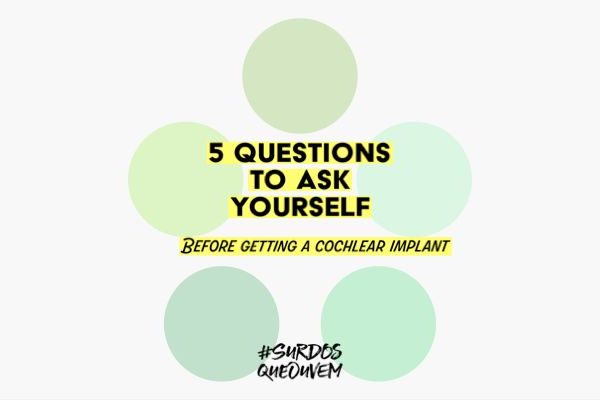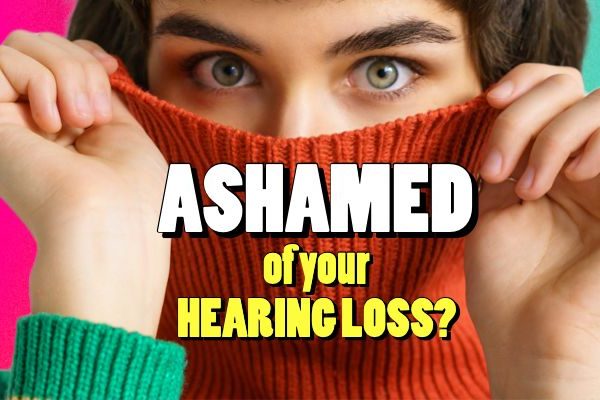My name is Luciano Moreira, and I’m an ENT surgeon from Brazil. As some may know, my wife, Paula Pfeifer, has profound hearing loss and is a brazilian deaf writer. I met her shortly after she received her first cochlear implant (she now has both ears implanted), which made it easier for us to connect.
But using a cochlear implant or hearing aid doesn’t mean hearing normally. These devices need to be turned off for showers, sleep, swimming, or when they malfunction or the battery dies. Plus, hearing through technology has its limitations.
In our eleven years together, I’ve learned a lot about hearing loss and love—lessons no medical training ever covered. I know many parents, spouses, and friends face similar situations to the ones I’ll describe here.
As a doctor who treats people with hearing loss, I encounter two main challenges every day:
Diagnosing Hearing Loss and Recommending the Best Rehabilitation: This may involve hearing aids, cochlear implants, and speech therapy to stimulate and train hearing.
Helping People with Hearing Loss Adapt to Their Social and Family Life: I often work with their loved ones to help them understand that communication is a two-way street—one person speaks, and the other listens. Often, this is the harder challenge.
We’ve all struggled to understand someone who talks too fast, with no facial expression, or in a monotone. When hearing starts to fade, many people insist they’re not losing their hearing—it’s just that other people don’t speak clearly enough. While this may be partly true, anyone who mumbles, speaks too softly, or turns their back while talking isn’t helping communication. This is especially true for someone with hearing loss.
So, if you live or work with someone with hearing loss, remember: their hearing aid or cochlear implant is not a mind-reading device. Clear communication is the least we can offer.
My wife is deaf: Lessons from My Life with Paula Pfeifer
From my perspective as both a doctor and a husband, here are a few tips to improve your communication—and your relationship—with someone who has trouble hearing:
Communication Isn’t Just About Hearing
We all rely on lip reading, facial expressions, body language, and context. People who hear with technology depend even more on these cues. If you want to be understood, face the person you’re talking to, and speak clearly. Living with Paula has made me a better communicator with all my patients and friends, not just those with hearing loss.
Turning Up the Volume Doesn’t Solve Everything
Hearing loss has many causes, affecting different parts of the ear. For some people, loud volume can actually be painful. Shouting won’t help—in fact, it may make things worse.
Safety Is a Shared Responsibility
You can close your eyes to shut out light, cover your nose to block smells, and stop eating to avoid tastes. But most of us can’t completely turn off our hearing—it’s our ever-present connection to the world. For someone with hearing loss, though, silence can be a reality when they’re not using their hearing aids or implants.
If you live with someone who has hearing loss, be aware of sounds that signal danger, especially when they aren’t using their devices. It’s up to you to help protect them.
Encourage Independence, Don’t Be Their Ears
Even though I just emphasized the need to be vigilant, it’s also important not to do everything for someone with hearing loss. They need to practice using their hearing as much as possible to build their independence.
For example, when I’m with Paula, it’s often easier for me to make phone calls. But if I didn’t encourage her to make her own calls, how would she ever build confidence? So, I’ll sometimes insist she make the call herself. She might not like it at first, but afterward, the look of pride on her face makes it worth it.
Social Situations Can Be Overwhelming
People with hearing aids or cochlear implants can hear well in quiet settings, but noisy environments like family gatherings or social events can be exhausting. Be understanding of how draining these situations can be for someone with hearing loss.
Keep Learning About Hearing Loss and Technology
Hearing rehabilitation is a science, constantly evolving with new technologies. Those living with hearing loss face daily challenges and might not always keep up with the latest advances.
Your role could be important—whether it’s discovering a new accessory, finding a phone with better sound quality, rearranging your home for better acoustics, or picking a quieter restaurant where you can enjoy a meal together.
Love and Hearing Loss: More Than Just an Obstacle
When I first started dating Paula, I thought love would be enough to overcome all the difficulties her hearing loss might present. I couldn’t have been more wrong. Her challenges made me more aware and attentive to my role in communication. That’s when I realized hearing loss wasn’t an obstacle to be overcome—it was an opportunity to connect with someone I love in a deeper, more meaningful way.
In a relationship, hearing loss isn’t something to get around. It’s a unique chance to grow closer in ways you never imagined.
ANY QUESTIONS?
Support Paula Pfeifer’s work. She is a hearing rehabilitation activist in Brazil and she is deaf herself – two cochlear implants.
Paula Pfeifer is a brazilian writer. Two of her books about hearing loss, hearing aids and cochlear implants can be found in english and spanish in Kindle.
Ver essa foto no Instagram



No Comments